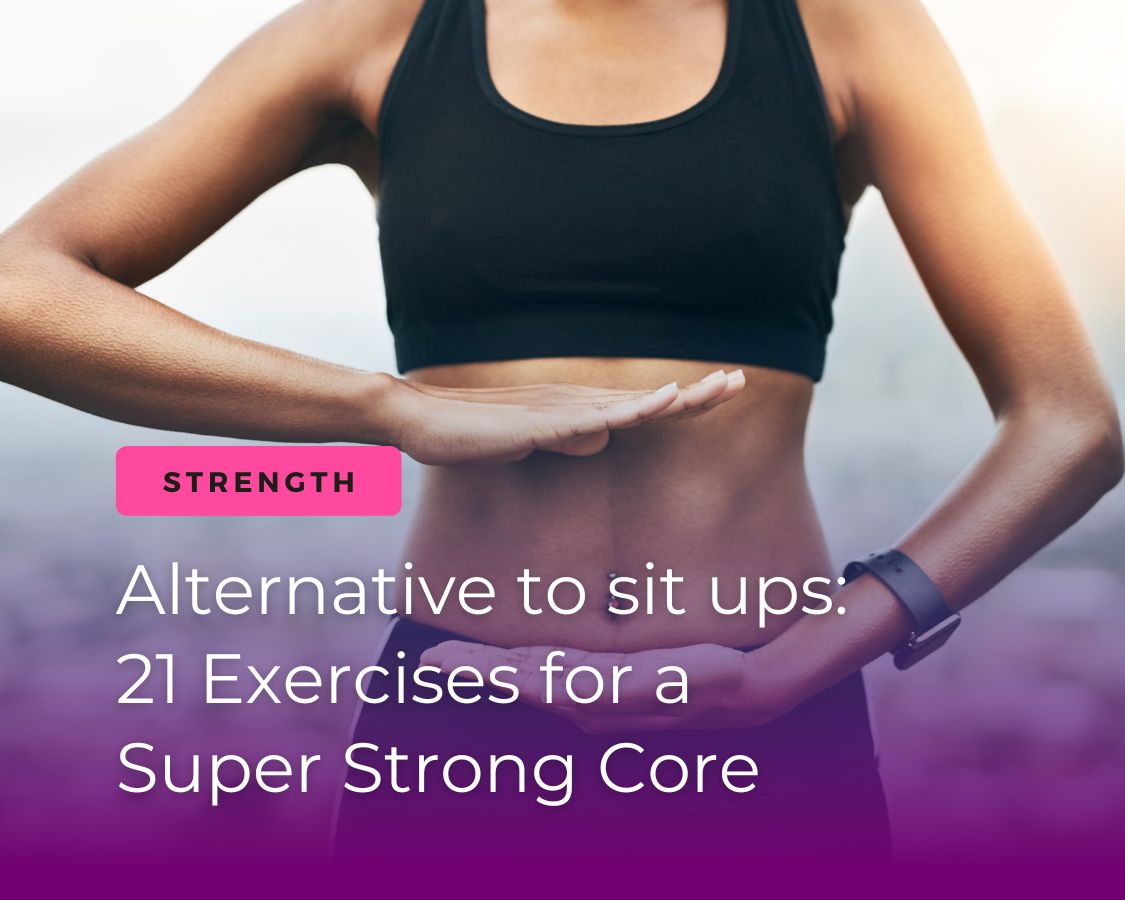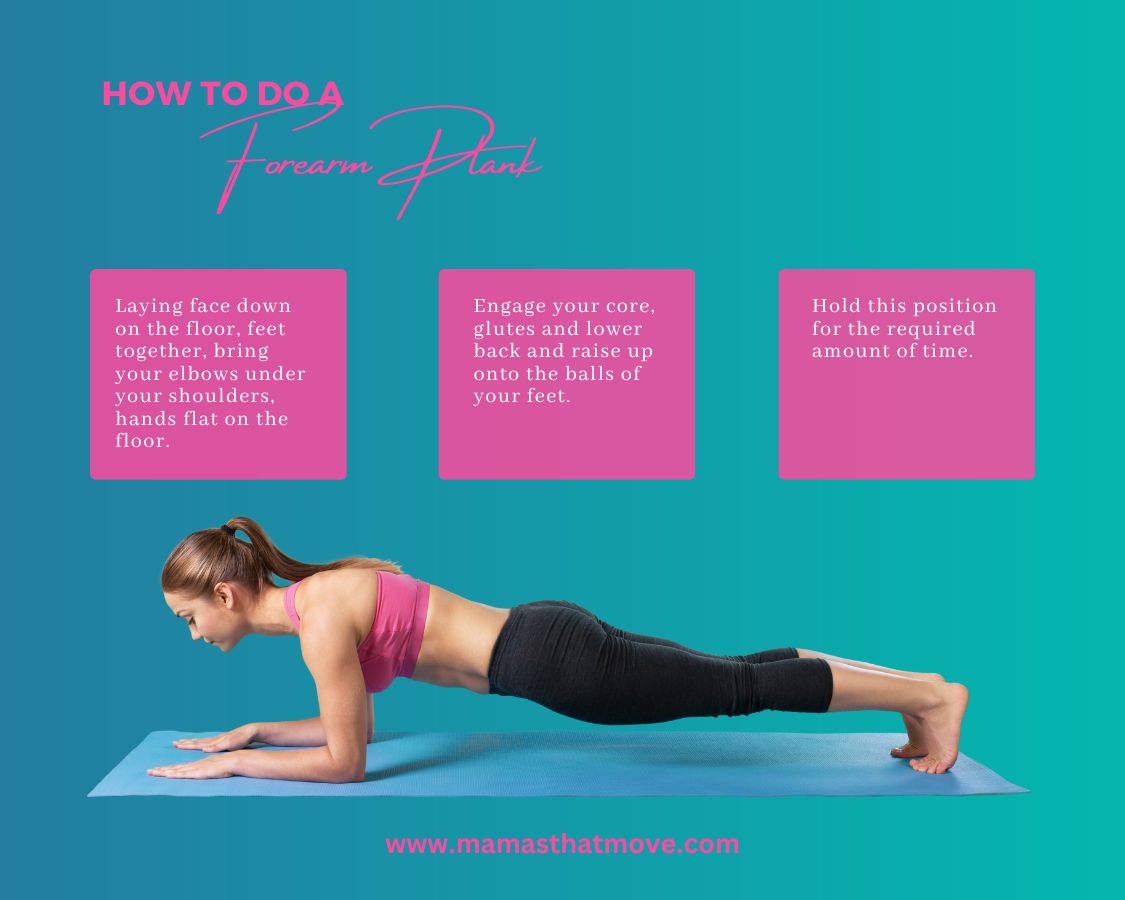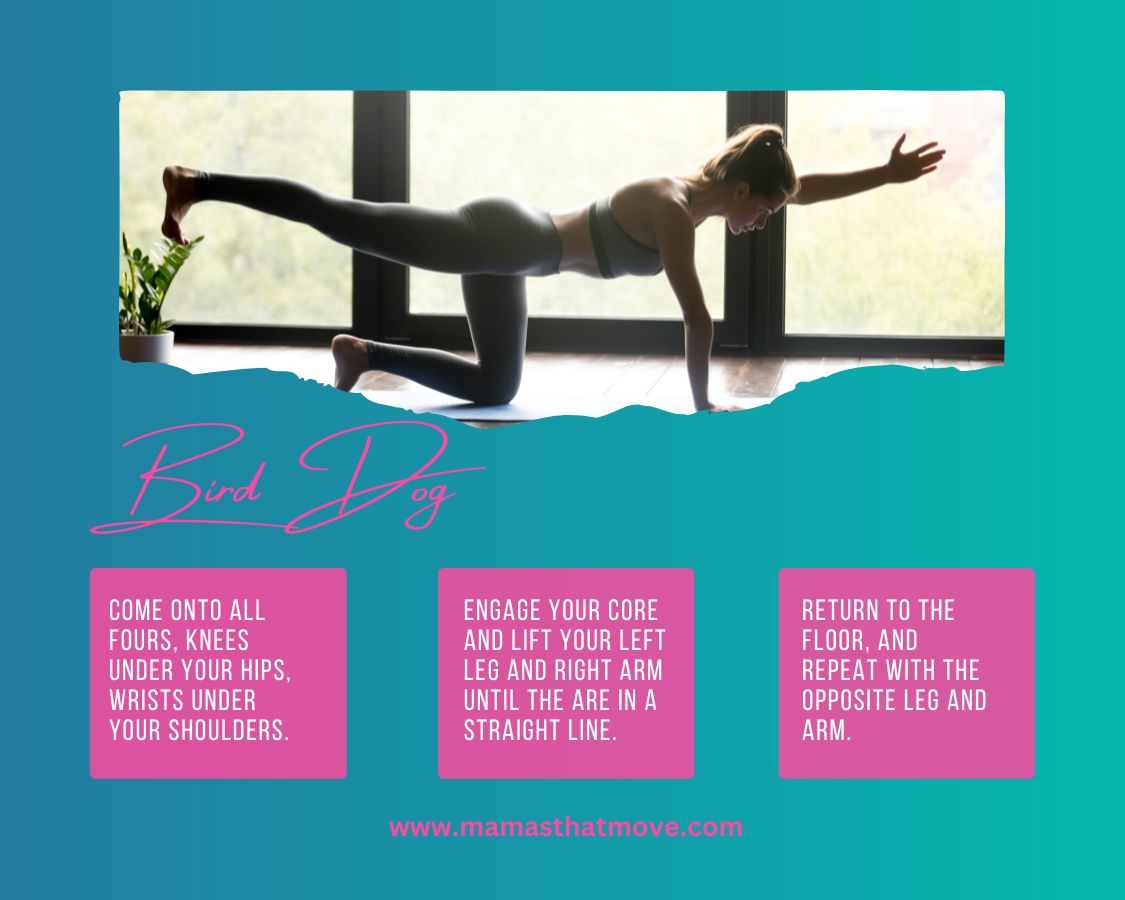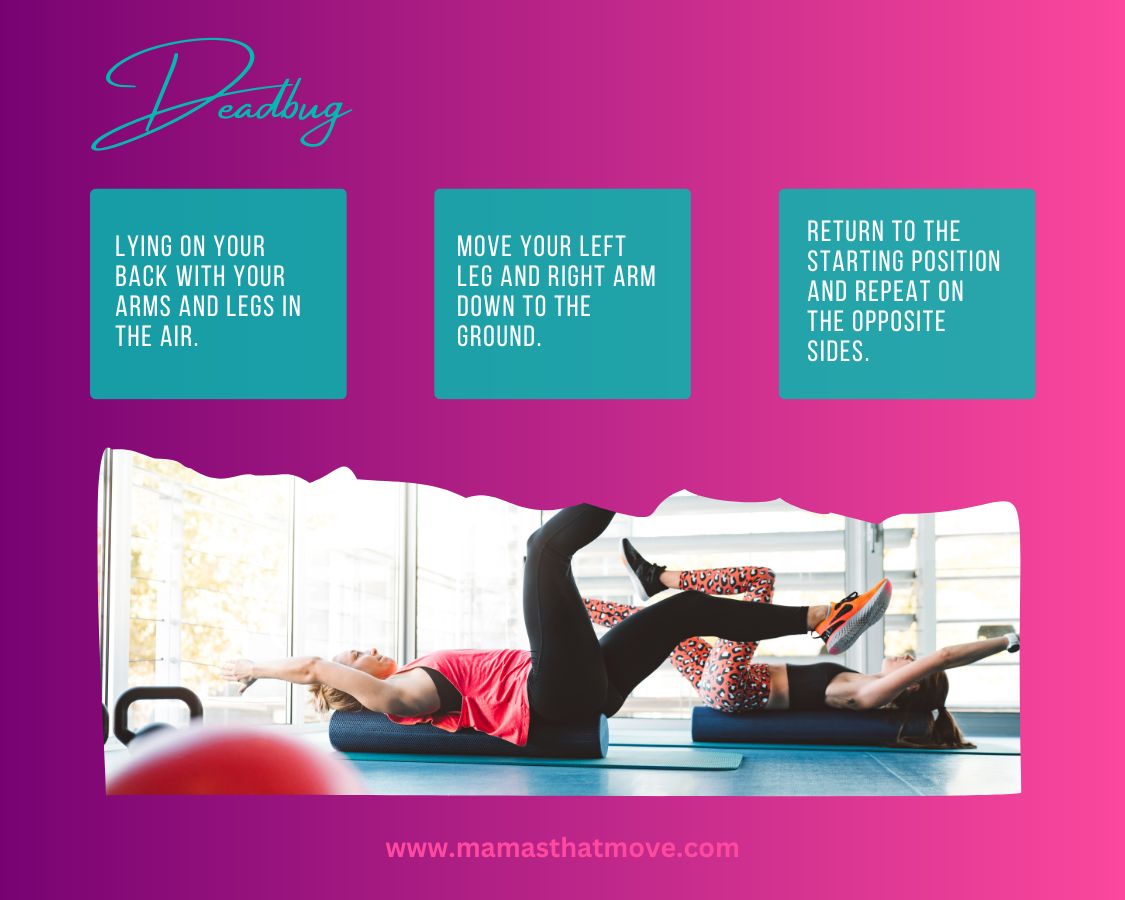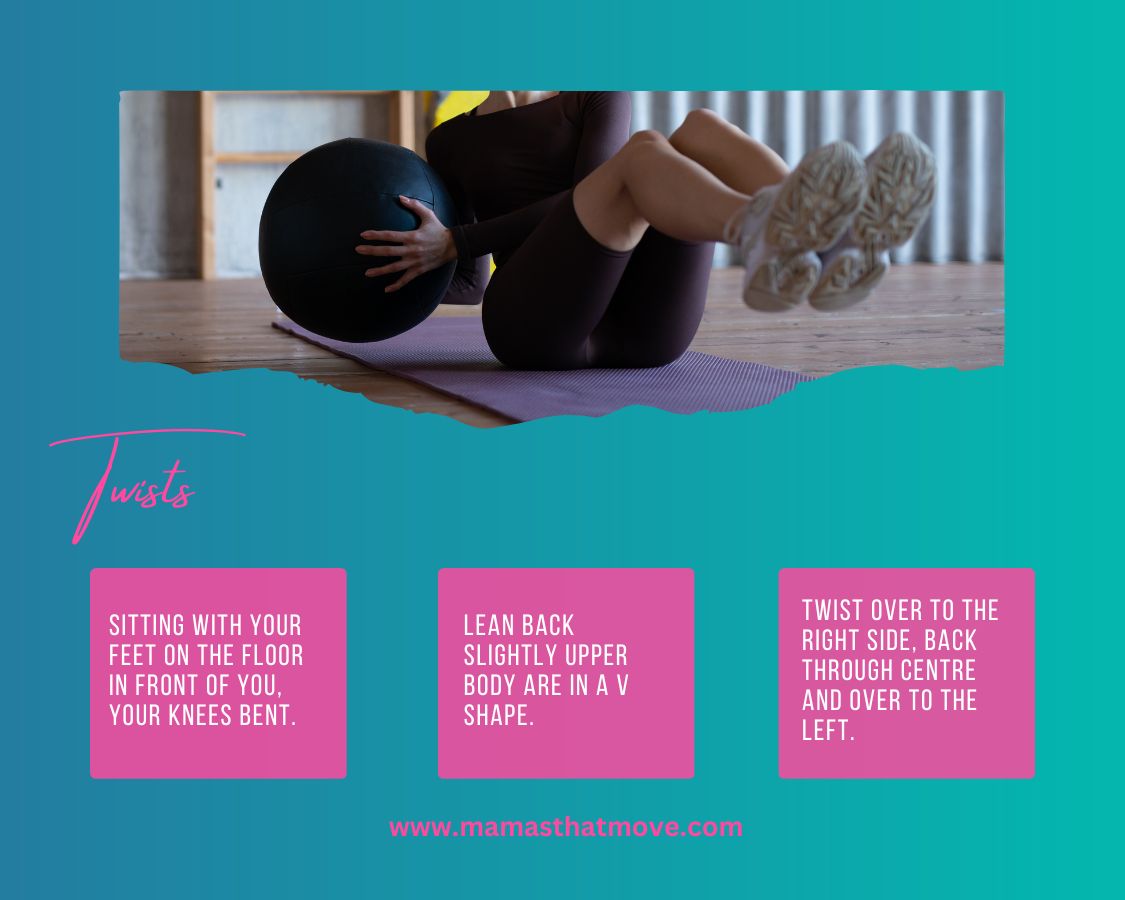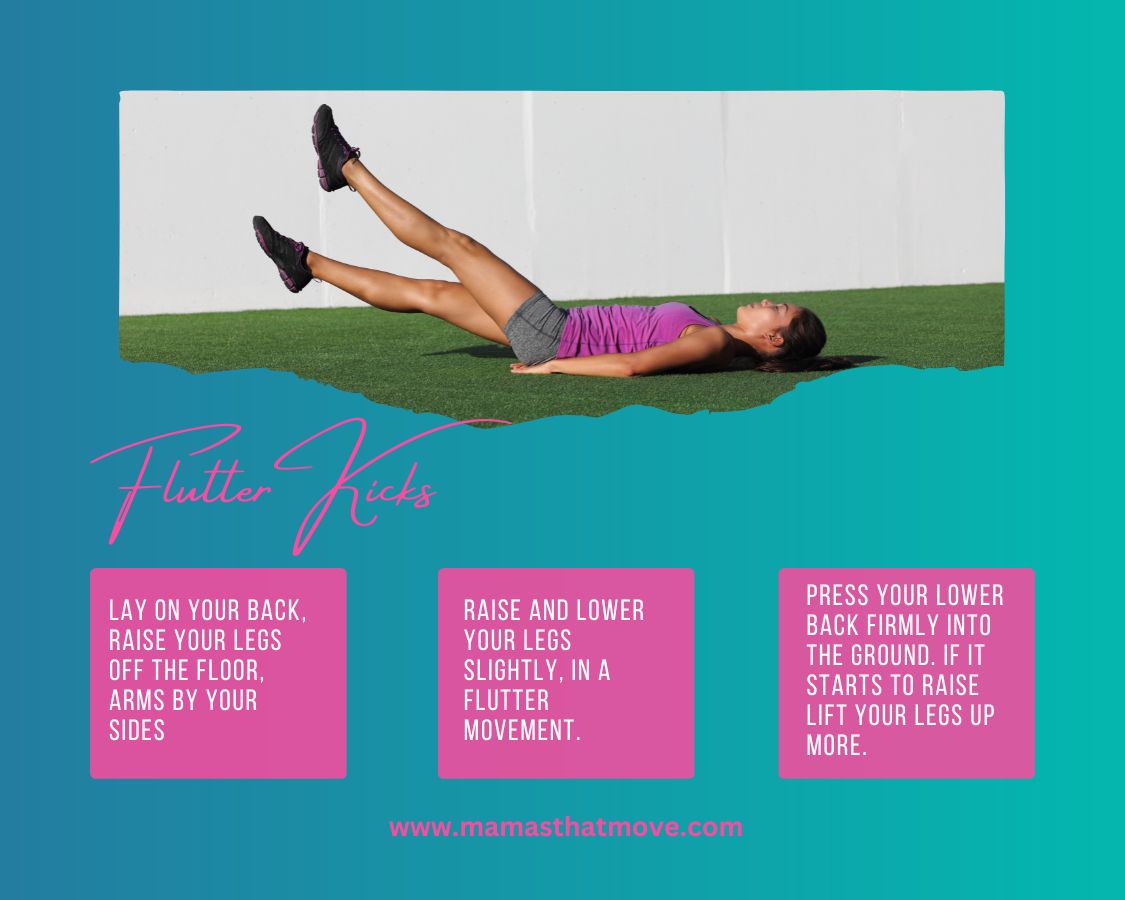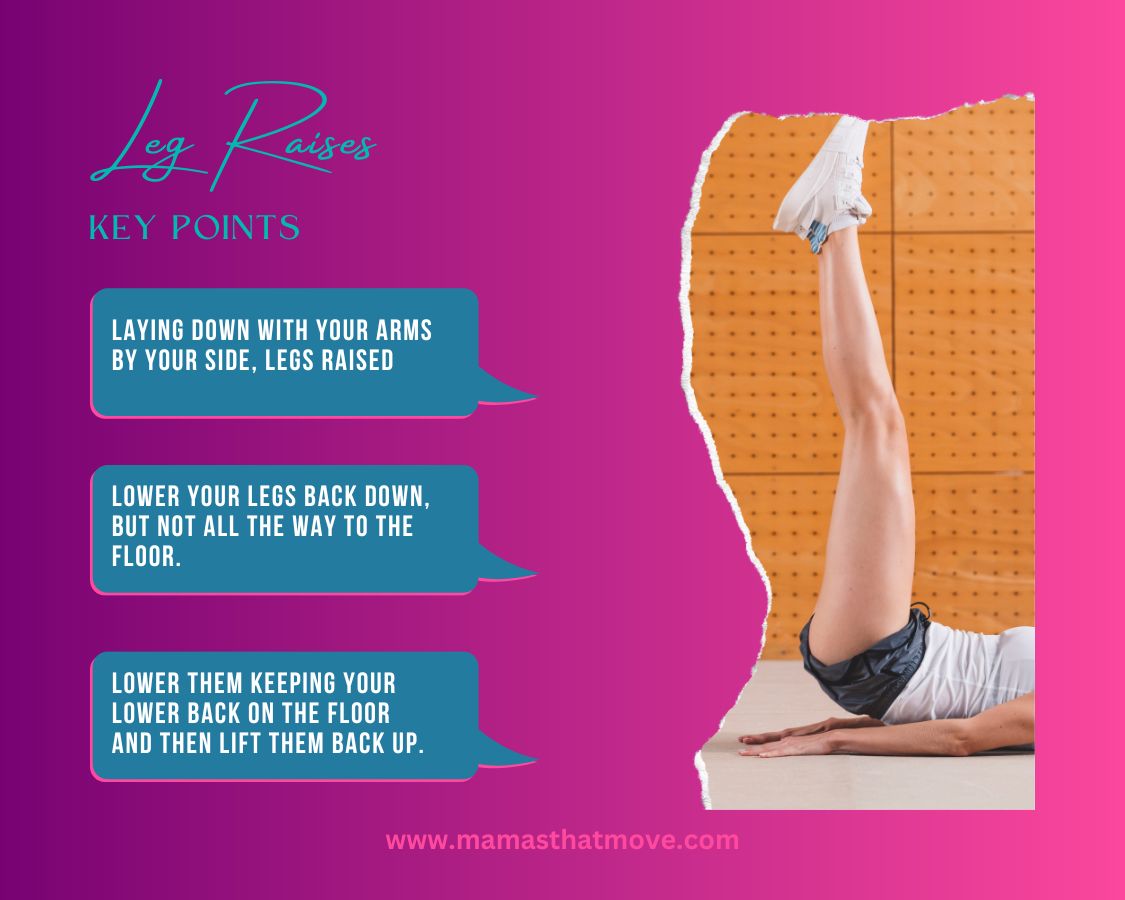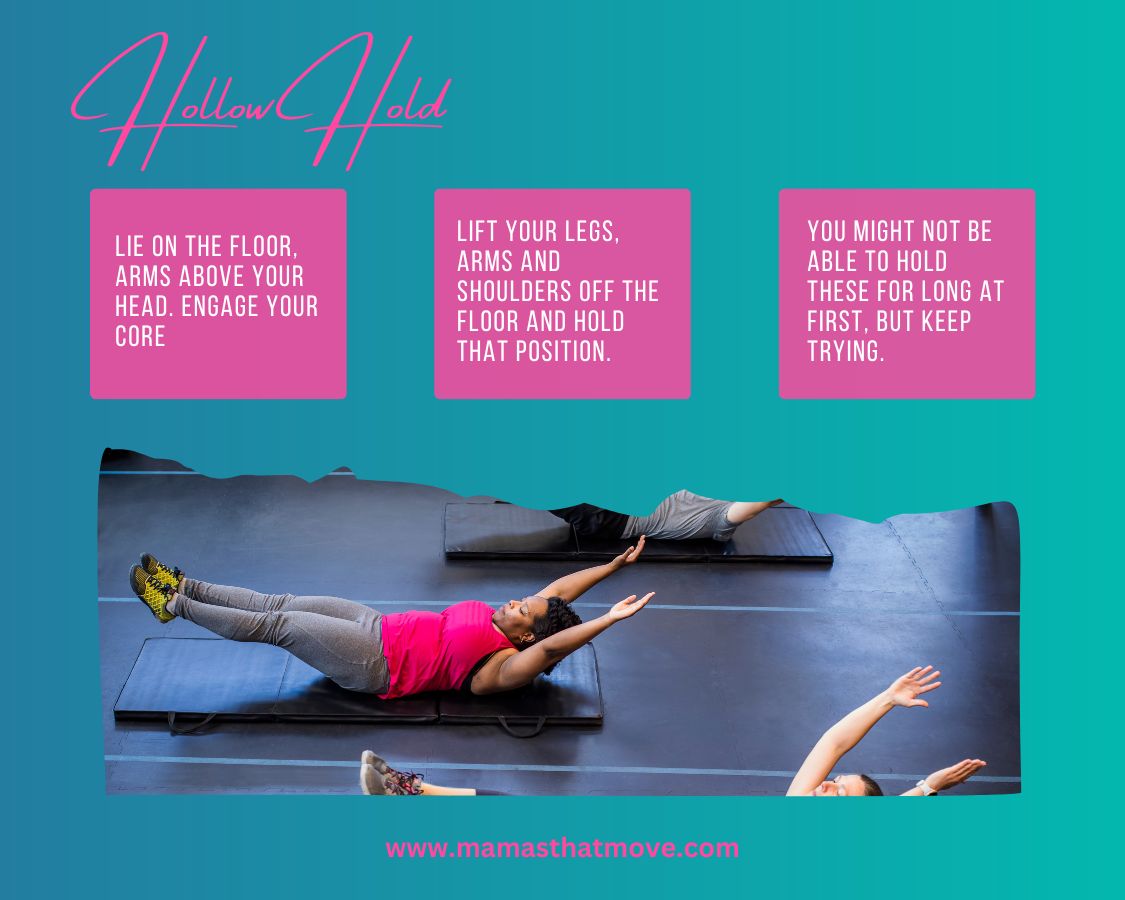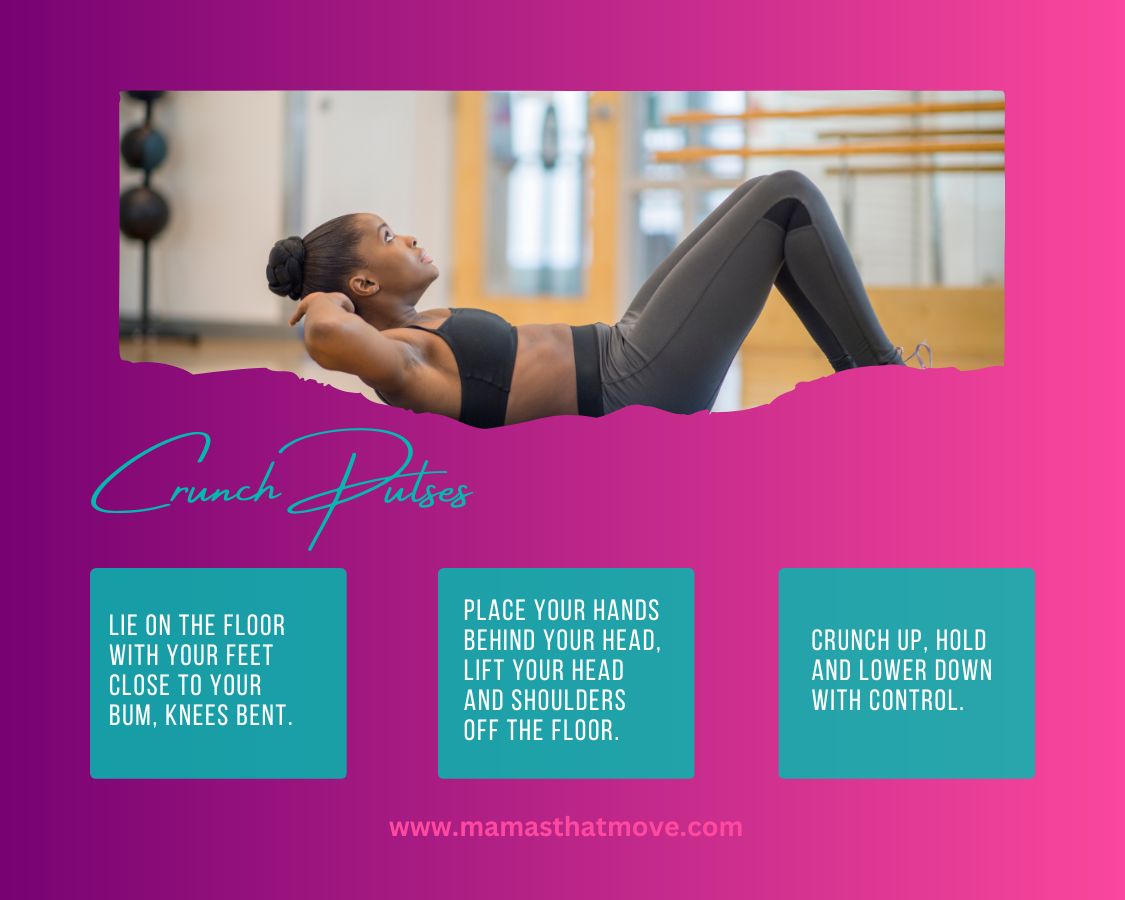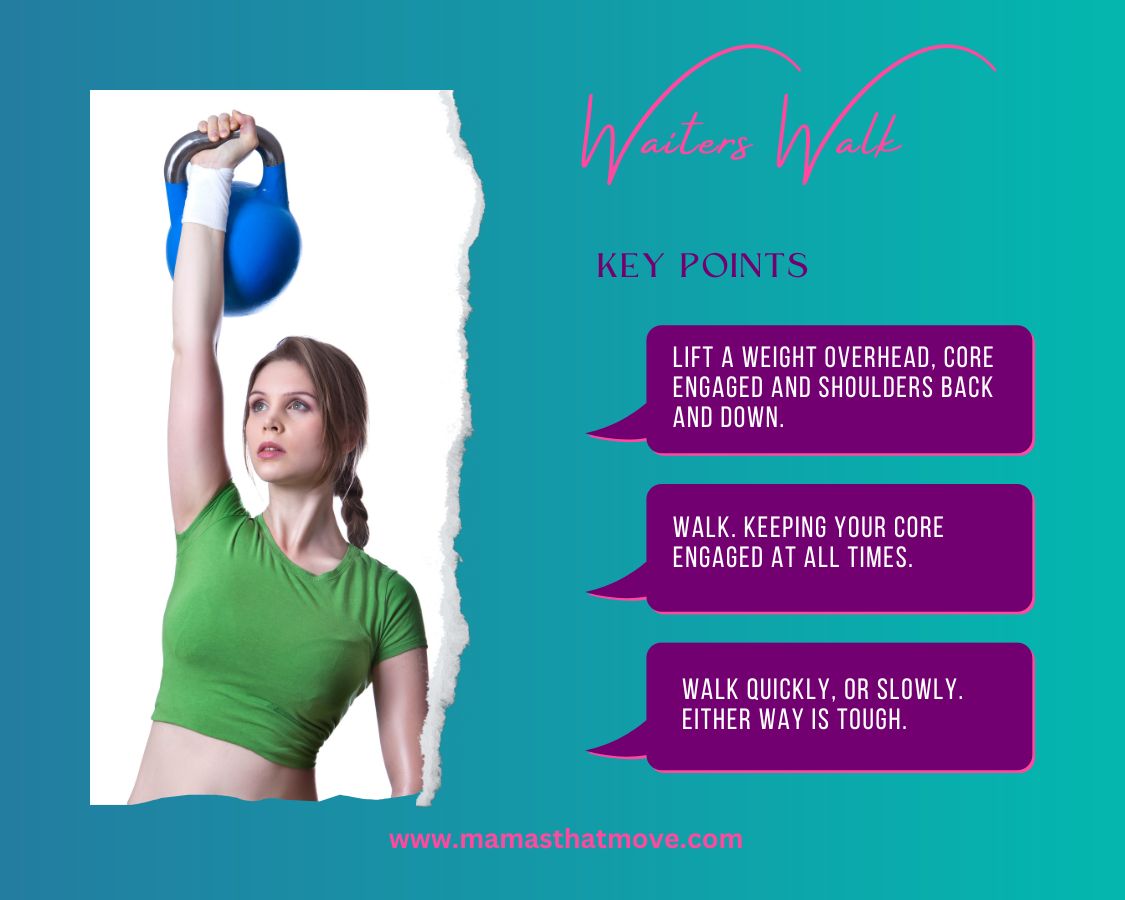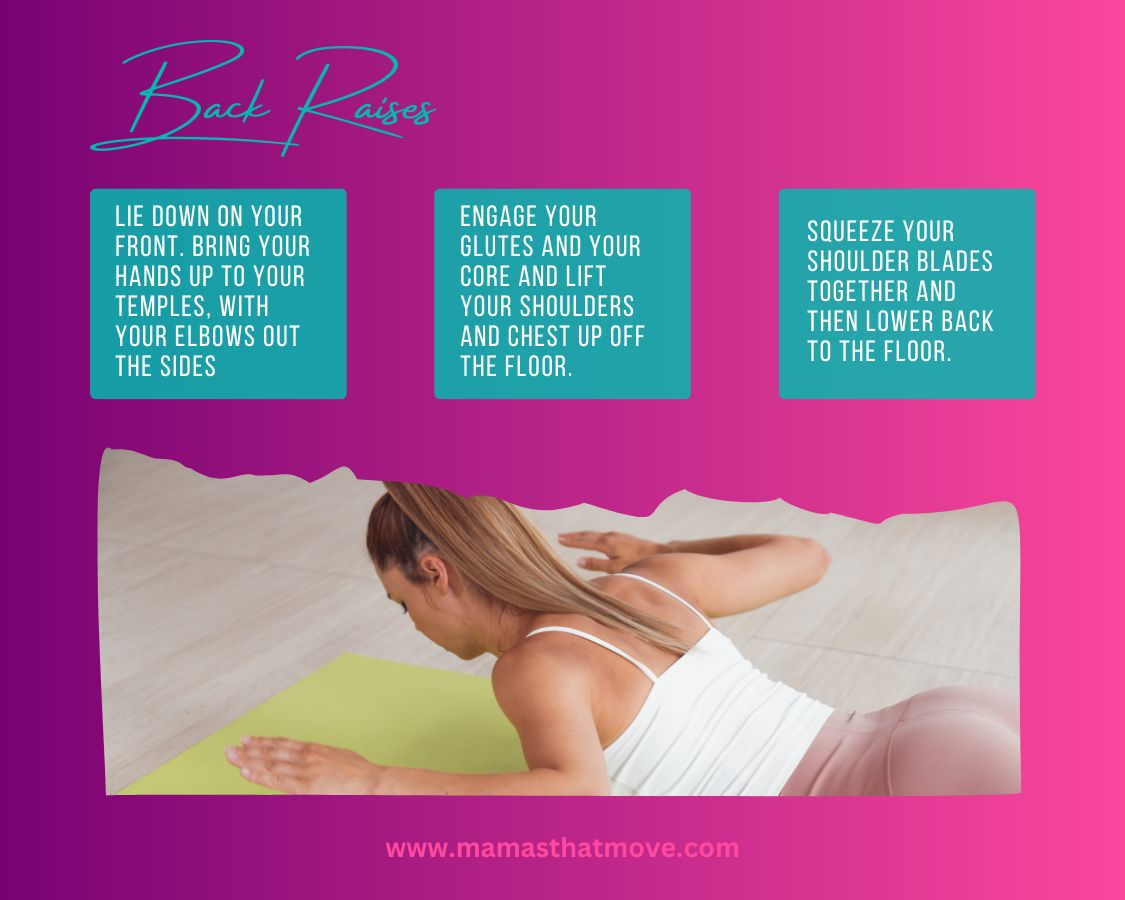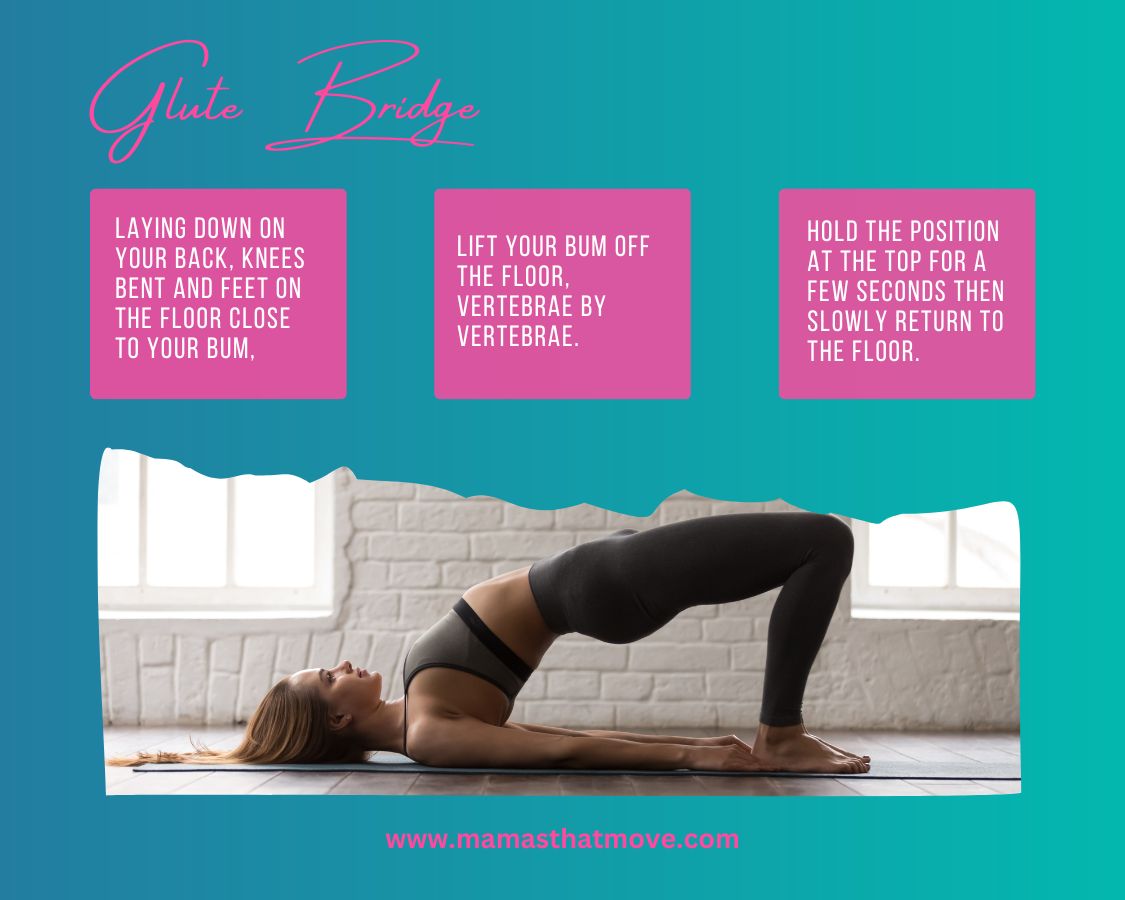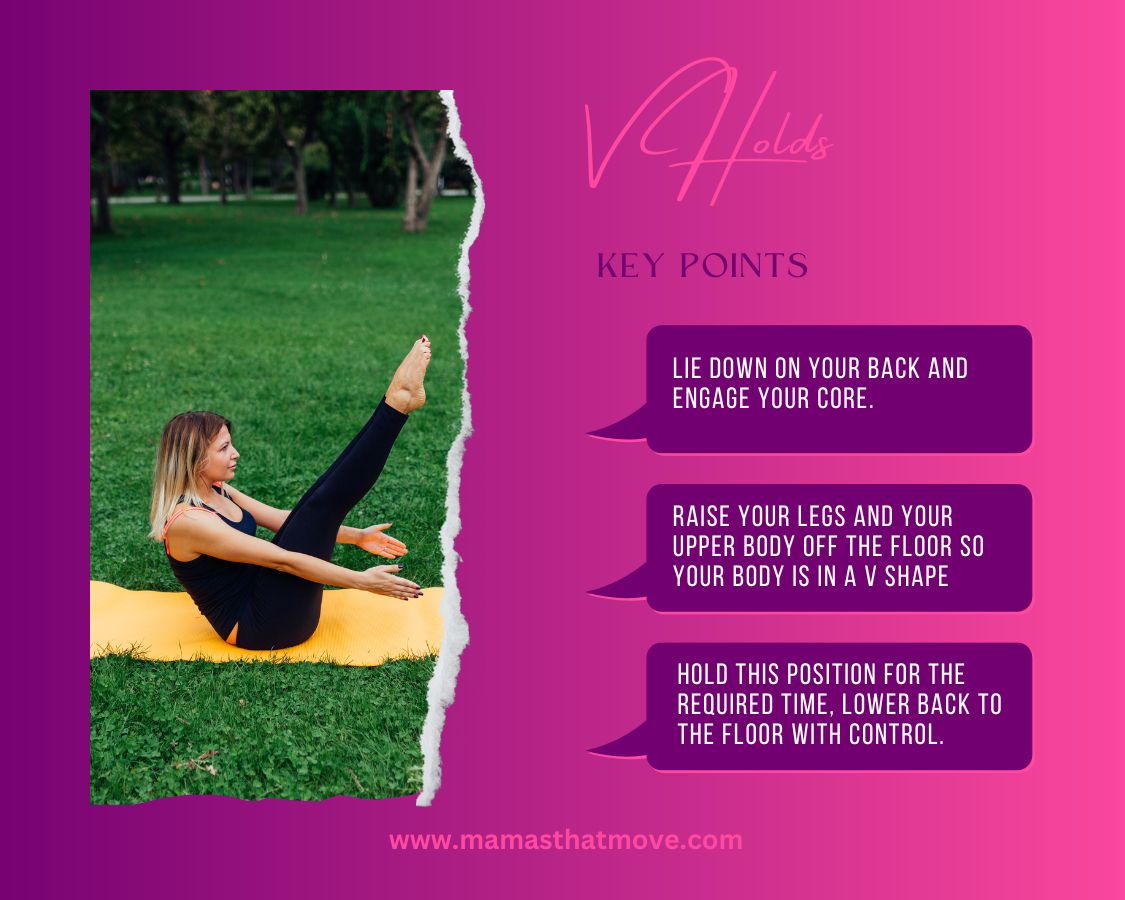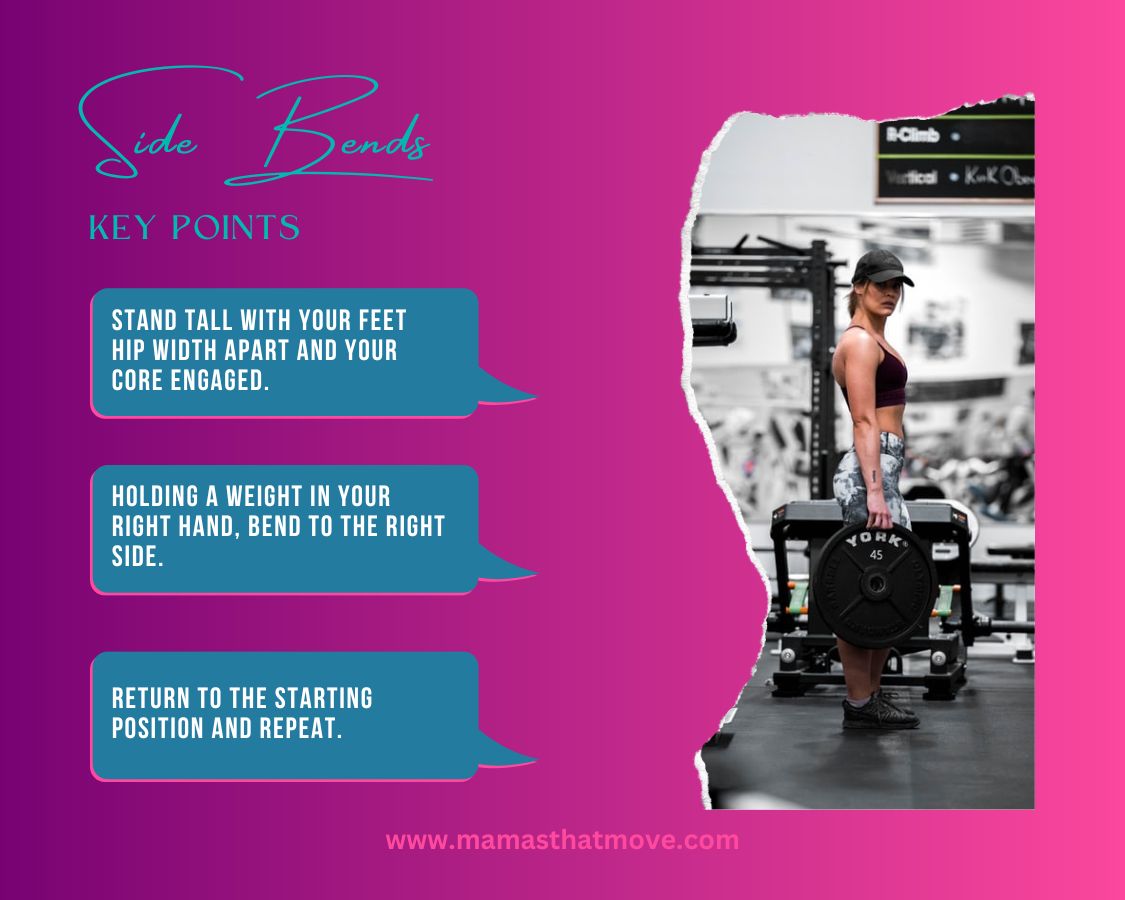- Home
- Strength Training for Women
- Alternative to Sit Ups
Alternative to sit ups: 21 Exercises for A Super Strong Core
Bored doing sit ups? The same old exercise to work your ab muscles? Good news, I've got an alternative to sit ups. In fact I've got 21...
Beth's 1 Week Meal Plan

Where do you stand on sit ups? Ha. No pun intended.
Do you love them or
hate them?
Do you do them in
every workout or avoid them like the plague?
The problem with
sit-ups, I find, is that they’re one of the most common exercises
to work your core muscles that means they’re very over used. They
become a bit boring.
And, if you’re
core isn’t that strong, which ts might not be, you’ll use other
parts of your body instead of your ab muscles.
I’m one for using
my neck when I do sit ups. I get terrible neck strain, and then a
migraine.
But, good news,
whether you hate sit-ups with a passion, or you’re just looking for
something to spice up your ab workout, there is an alternative to sit
ups.
In fact, I’ve got
21 for you...
Six-Pack Abs
Just a quick note
before we get onto the 21 Alternatives to Sit-Ups…
If you’re hoping
to get a six-pack, or a flatter, more defined stomach, then you’ll
need to pair any ab workout with healthy eating.
Ab exercises are
great for giving you a strong core, and more defined muscles. But,
what they won’t do is burn fat.
Healthy eating,
combined with a varied, well-rounded workout plan is what you need
for a flat abs.
If that is what
you’re looking for, then do get in touch because I can help.
Anyway, enough of
the side bar, let’s get to these core exercises….
Related Pages
Alternative to Sit Ups #1: The Plank, and all it’s variations
The
plank comes in many forms. Side plank, high plank, forearm plank,
planks with one foot off the ground, planks with your feet elevated.
Moving planks. Planks with a shoulder tap.
There
are endless variations of the plank.
In
fact you could probably do an entire ab workout with just plank
variations.
And
it would be a tough workout.
The
plank doesn’t just work your ab muscles. Yes, it does work them.
All of them to be exact, but it doesn’t stop there.
Depending
on what variation you’re doing you’re also working your pelvic
girdle, your shoulder girdle, your legs, your spine, your rhomboids,
your trapezius.
And
the moving variations, walking plank, mountain climbers, plank jacks,
they’ll also get your heart rate up. So it’s not just a
strengthening exercise any more. It’s a cardio one as well.
And
let’s not forget the versions that take limbs off the floor. Think
plank with shoulder taps, single legged planks, single arm plank.
They’ll be working your balance and your mind body connection.
Yeah
planks are awesome.
Put
enough together and you’ll have a workout that targets the entire
body, muscular, cardiovascular and neural.
What more could you want for a quick and effective workout.
Alternative to Sit Ups #2: Windshield Wipers
I
love these. They work your abs, yes, but they also give you a lovely
spinal twist.
If,
you’re not familiar with them, you lie on your back with your arms
stretched out to the side.
Bring
your legs up straight so your hips are at roughly 90 degrees. It’s
not essential your legs are straight. If you can’t manage it, a
slight bend in your knees is fine.
You
then take your legs over to the right side. Pause for a moment, bring
them back up through centre and over to the left side. Just like a
windscreen wiper.
Try
to use your abs as much as possible when you’re bringing your legs
up. That’s the point of the exercise.
Again
these are a great exercise for working your core. They target your
obliques and rectus abdominis, your glutes and your hip flexors. But
they also give you a lovely stretch in the hamstrings and lower back
muscles.
They
are amazing.
If you haven’t tried them yet, I would highly recommend them.
Alternative to Sit Ups #3: The Bird Dog
This
one works different sides of the body together.
You
might be thinking, that’s not big deal, but actually it is.
When
you’re working the opposite sides of your body, say lifting your
right leg and your left arm, as you would in this exercise, you’re
encouraging both hemispheres of the brain to communicate.
It’s
something we work on a lot when we’re very young, because we want
those connections to develop. But as we get a bit older, the need
goes away and it takes less of a priority. But, it’s still
important.
It’s
important for balance and stability. It’s important to keep your
brain sharp.
So,
how do you do it?
Come
onto all fours with your knees directly under your hips and your
wrists directly under your shoulders.
Take
a deep breath in, engage your core and lift your left leg and right
arm until the are in a straight line.
Return
to the floor.
And
repeat with the opposite leg and arm.
Make
sure you engage your core and try and sync up your breath and
movement.
Breath in to lift, breath out to return to the floor.
Alternative to Sit Ups #4: Deadbugs
These
are very similar to bird dogs, but instead of being on all fours
you’re lying on your back with your arms and legs in the air.
You
move your left leg down to the ground whilst moving your right arm up
and over head towards the ground.
Return
to the starting position and repeat on the opposite sides.
This
movement is really important for anyone, but especially those of us
who’ve had babies.
It works on the deep core muscles, the transverse abdominals and they’re great if you suffered from Diastasis Recti.
Alternative to Sit Ups #5: Russian Twists
I’m not sure if we
should still call them that...but I haven’t heard any kind of
different name yet, so I’ll stick with it. For now at least.
Russian twists are,
you guessed it, a twisting exercise.
Sitting with your
feet on the floor in front of you, your knees bent, lean back
slightly so your upper body and legs are in a V shape.
Twist over to the
right side, then back through centre and over to the left.
If you want to make
it harder, you can lift your feet up off the floor.
Russian twists are a great exercise for working your obliques, they’re your side abs. The ones that give your waist definition.
But, they don’t just work your obliques. They work your legs, your spine and your core as a whole.
Alternative to Sit Ups #6: Flutter Kicks
Flutter kicks, they
sound sweet don’t they?
But, don’t be
fooled, they are a really tough exercise.
They predominantly
work your lower abs, which makes them a good alternative to sit ups.
Because they work the same muscles.
To do them, you lay
on your back, raise your legs off the floor and flutter your feet up
and down in small, quick movements.
Just make sure you
don’t arch your lower spine. It should be pressed to the floor
throughout the exercise.
Lift your legs up higher if you feel your lower back start to raise.
Alternative to Sit Ups #7: Leg Raises, Leg Lowers
Leg raises are great
for so many reasons.
They’re great for
strengthening your legs if you can’t do squats. But they’re also
great for working your ab muscles.
And, they can be
done is so many ways.
Laying down with
your arms stretched out to the side, lift your legs up until your
hips are at a, roughly, 90 degree angle. It doesn’t matter if you
don’t quite get them all the way up.
Lower your legs back
down, but not all the way to the floor. Again, making sure your lower
back doesn’t arch off the floor.
Then lift them back
up.
This should be done
in a controlled manner. Don’t just lift, lower, lift, lower. Slow
it down. Make it controlled. Concentrate on using those abs.
It will make the exercise far more effective.
Alternative to Sit Ups #8: Hollow Hold
Hollow holds are
kind of like planks but upside down.
You lie on the
floor, lift your legs, arms and shoulders off the floor and hold that
position.
Just like planks,
they’re very, very tough. So, you might not be able to hold it for
long initially. But keep working at it, you will get there.
Why are they so
good?
Because, just like planks they work pretty much all of your ab muscles. But on top of that you’ll also be working your arm muscles, your shoulder muscles, your legs and your back.
Alternative to Sit Ups #9: Reverse Sit-Ups
One way to change up your sit up is to do a reverse sit-up.
Why would you want to?
Because they strengthen the full length of the rectus abdominis and
right down into your deep core muscles.
They also take the strain off your neck. If you’re anything like
me, sit-ups can really strain your neck. I tend to use my neck
instead of my abs. Obviously, strengthening my core is going to help,
but doing exercises that will take the strain off my neck in the
short term is going to make it a lot easier.
How do you do them?
Lay on the floor face up.
Keep your arms at your side with your palms face down.
As you exhale raise your legs, until they’re vertical, or as close
to vertical as you can get them. A slight bend in your knees are
fine, if it helps.
Then you’re going to lift your legs up to the ceiling, lifting your
bum and hips off the floor.
Try to keep your back and shoulders firmly planted on the floor.
Once you get a little stronger, you can try lifting your shoulders off the floor while you do it. But, if you do tend to take the strain in your neck, don’t do this until you’re stronger.
Alternative to Sit Ups #10: Crunch Pulses
If you do happen to
like doing sit-ups, crunch pulses are a great way to keep the same
movement in your workout routines.
These are like the
cousin of full sit-ups.
You set up as you
would for a regular sit-up, lay on the floor with your feet on the
floor and your knees bent.
Raise your shoulders off the floor and keep them there. Crunch up, slightly and lower down. Keep repeating.
Alternative to Sit Ups #11: Farmers Walk
As you know I’m a
big fan of exercises that work all of your body, and the farmers walk
is one of them.
A favourite of mine
when I did strong woman competitions, they’re tough but very
effective at increasing strength, burning fat, working ab muscles.
To do them you hold
a weight in each hand, dumbbells, a weight plate, kettlebells, even
farmers walk handles, and you walk. For whatever distance you have.
Traditionally you’d
walk as quickly as you can. The goal is usually to do the distance in
the fastest time.
But, if you’re
struggling for space, or heavy weights, you can try going slower.
Slower can actually
be harder than going faster. Faster will, work your cardio system as
well as your muscles, but slower will make your muscles scream just a
little more.
The trick with
farmers walks is to engage that core.
You’re really going to need to to keep those weights stable. Especially if you’re using farmers walk handles.
Alternative to Sit Ups #12: Waiters Walk
Another fun one to
do with weights.
This time you carry
the weights over head.
Kettlebells and
dumbbells work best for this exercise. And just one at a time. That
way your core is working overtime trying to balance up your body.
To do it, lift a
weight overhead, making sure your core is engaged and your shoulders
are back and down.
And then you walk.
Just like with farmers walks, walk fast or slow. Slowly can be just as challenging as if you walk quickly.
Alternative to Sit Ups #13: Elephant Walks
This one is another
favourite of mine, and is best done with kettlebells. Competition
kettlebells because you’ll need the wide bottom to stabilise
yourself.
To do it, you’ll
need to be in a high plank position using the kettlebells. So,
instead of your hands on the floor they’re holding the kettlebell
handles.
Inch forward
swinging the kettlebells as you go.
Take this one easy.
There’s no rush.
It’s more important to keep your technique spot on rather than getting them done quickly.
Alternative to Sit Ups #14: Back Raises
One thing most
people tend to do when they’re working their abs is to forget about
their backs.
I know you might
think it’s strange, you want to concentrate on your abs right?
But, to make sure
you’re working your entire core, you need to do your back. And your
glutes actually, but we’ll get on to that one in a second.
So back raises.
Lay down on your
stomach, with your arms bent either side of your head, so it looks
like a pea on a fork.
Lift your chest off the floor, concentrating of contracting your back muscles.
Alternative to Sit Ups #15: Glute Bridges
Yes, this is the other non traditional ab exercise, but if you want a
strong core, working those glutes is just as important as working
your ab muscles.
Why?
Because if your glutes aren’t strong, your ab muscles will be
working overtime to take the strain.
And, if they’re working overtime already, doing jobs they’re not
really designed to do, they’re not going to appreciate working even
harder doing any of these exercises.
But, glute bridges are great because, yes, they strengthen your
glutes, but they do also work those abs muscles.
How do you do them?
Lying down on the floor with your arms by your side and your legs
bent, feet close to your bum.
Slowly lift your bum off the floor raising your hips up to the
ceiling.
Keep going until just your shoulders and feet are on the floor. Pause for a moment and then slowly return back down to the ground.
Alternative to Sit Ups #16: Inchworm
Inchworms are
another favourite of mine. Wow, I’ve got lots of favourites haven’t
I?
I like these because
they’re a bit different. And I like different ways to train my
body.
So, standing tall
with your feet hip width apart and your core engaged roll your upper
body down so your hands come to the floor. A bend in your knees is
fine if you’re flexibility isn’t great.
Now, walk your hands
out so you’re in a high plank position.
Then walk your feet
up to your hands. Keeping those knees bent if you need to.
Then walk your hands
out again.
Keep going for the
required number or the required distance.
If you haven’t got space then you could change these to walk outs. So you’d do the first part of the movement, get into that high plank position, but then walk your hands back to your feet, rather than moving your feet.
Alternative to Sit Ups #17: V Holds
I don’t know about you but I find any exercise where you have to
hold a position much harder than moving.
And V Holds are tough.
They’re very similar to hollow holds, but your body is in a V shape
rather than an upside down plank.
Are there any benefits to doing these over hollow holds?
I’d say not really. They are both amazing ab exercises and ones to master if you’re looking for insane core strength.
Alternative to Sit Ups #18: V Ups
Ok, I lied in number 17. V ups are a dynamic exercise, but I don’t
find them any easier that V Holds.
These are essentially two ab exercises in one torturous movement.
You’re going from a hollow hold up to a v sit and back to that
hollow hold.
Repeat.
Shall we come back to that when we’ve had a few more coffees? I think that’s a good idea.
Alternative to Sit Ups #19: Renegade Row
Another one using weights.
Again dumbbells or kettlebells are best for this. And if you’re
using kettlebells make sure they’re the competition bells because
you’re going to need wide base for stability.
They’re pretty much a plank, with weights.
So you’d come into high plank position, with your hands holding the
weights rather than on the floor.
Make sure your core is engaged, breathe in and lift your right hand,
bending your right elbow. The weight and your elbow should stay close
to your body.
Return it back to the ground and repeat on the other side.
Simple. But not easy. Never easy.
Alternative to Sit Ups #20: Weighted Side Bends
Yes, weights again.
This time you’re holding the weight in your hand down by your side.
That means any weight will do. Even a bag of potatoes will work.
This one is especially good for those oblique muscles. And, as you’re
holding a weight it’s also going to work those arms, shoulders,
pecs and traps.
It’s a very simple exercise.
Stand tall with your feet hip-width apart and your core engaged.
Holding a weight in your right hand, bend to the right side, making
sure not lean forward or backwards.
Hold for a moment and return to standing.
Repeat for the required number of reps or the required amount of time.
Alternative to Sit Ups #21: Bear Hold
And the last
exercise is yet another hold. He he.
This time it’s in
a bear crawl position.
Moving like animals
is a great way to workout. They are really functional, full-body
movements that get your mind and body working together.
So, come on to all
fours with your hands under your shoulders and your knees under your
hips.
Curl your toes under
and lift your knees slightly off the floor.
Not a great
distance, but so that there’s air between your knees and the floor.
Hold this position.
Make sure you core
is engaged and that you’re breathing.
In fact, that’s really good advice for all of these movements. Make sure you’re breathing and not holding your breath.
Alternative to Sit-Ups: Let’s Get Creative
So there you have
it, my top 21 ab exercises that don’t involve a sit-up.
Why stick to boring
old sit ups when you’ve got so many exercises to choose from.
And, there’s more,
but I had to stop the list somewhere.
If you enjoyed this,
and you want to know when anything new is on Mamas that Move, and
that includes free workouts. Then sign up for my newsletter.
There’s a present waiting for you.
Get Your Ultimate Free Eight Week HIIT Workout Plan
Get fitter, stronger and leaner in just eight weeks with my printable HIIT workout Plan. Just 30 minutes a day is all you need.
Want to know more before you sign up?
Check out Printable HIIT Workout Plan to learn all about the plan, what's involved and why you should get it.
What are the alternatives to sit ups?
What are the alternatives to sit ups?
- The plank and all it's variations
- Windshield wipers
- The bird dog
- Deadbugs
- Russian Twists
- Flutter kicks
- Leg raises and leg lowers
- Hollow hold
- Reverse sit-ups
- Crunch pulses
- Farmers walk
- Waiters walk
- Elephant walks
- Back raises
- Glute bridges
- Inchworm
- V holds
- V ups
- Renegade row
- Weighted side bends
- Bear Hold
What to do if you can't do a sit-up?
What to do if you can't do a sit-up?
Don't worry if you can't do a sit up.
There are so many alternatives you could have a rock hard core without ever doing a sit up. There are 21 alternatives to sit-ups right here. And there are more.
